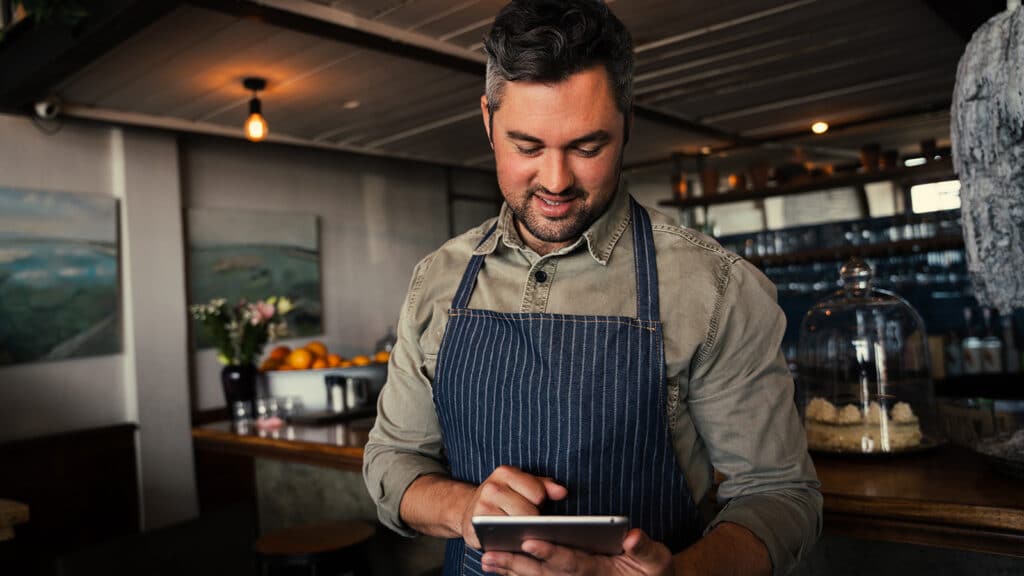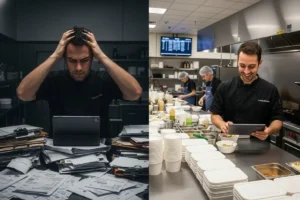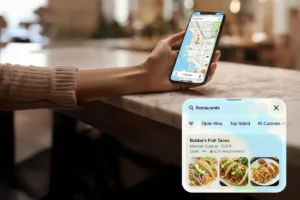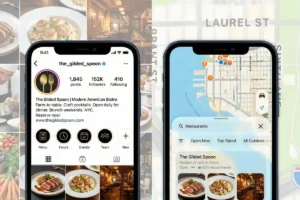Introduction
In our recent conversation with Matt Rolfe, an experienced hospitality leadership coach, we explored strategies for improving restaurant profitability through transformative leadership and behavioral coaching. Inspired by influential figures like Tony Robbins, Matt’s coaching methodology focuses on fostering mutual support among industry peers. Join us as we uncover Matt’s insights tailored to support the sustainable scaling of successful restaurant operations.
About Matt
Matt, a leader in hospitality coaching, brings a strong background from Bacardi and Anheuser-Busch. Driven by his entrepreneurial spirit, he founded a company focused on boosting restaurant profits, now with 18 global offices. While skilled in profit and inventory management, his true passion is leadership development. He splits his time between two companies, working closely with leaders and teams to master effective leadership.
Matt’s approach revolves around prioritizing the well-being of his clients, addressing how they nurture themselves amidst their demanding roles. He then assists them in establishing clarity regarding their goals and direction before tackling the challenge of execution. By empowering leaders to navigate these complexities with confidence, Matt fosters personal and business growth within their organizations. Additionally, Matt is also a published author, with his book, “You Can’t Do It Alone: Focusing on People to Scale, Develop and Lead Your Restaurant.”
Shifting the Restaurant Operator Mindset: From Hustle to Leadership
The restaurant industry presents unique challenges, particularly for small and medium-sized businesses, often leading operators into a cycle of firefighting and tunnel vision due to scarcity and pricing sensitivity. Matt Rolfe observes that despite these challenges, many restaurant owners are open to coaching, seeking ways to break free from this cycle. His approach involves creating a need driven by intrinsic motivation rather than external pressures, emphasizing personal fulfillment and sustainability over mere profitability.
Reflecting on his own journey, Matt underscores recognizing when the status quo is unsustainable and redefining one’s identity within the business to align with a compelling vision for the future. This shift in mindset requires introspection and a deep understanding of personal values and aspirations, enabling operators to navigate challenges with resilience and clarity.
Effective coaching tailored to individual needs and motivations plays a crucial role in facilitating this transformation. Rather than offering generic solutions, Matt focuses on understanding the unique challenges and aspirations of each client, guiding them towards meaningful change and a better future.
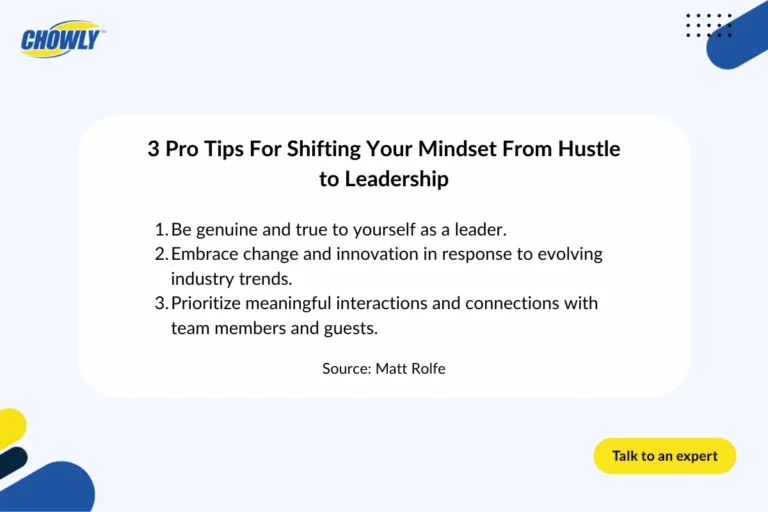
Cultivating Human Connection in the Restaurant Industry
In the realm of restaurant operations, the daily hustle often eclipses genuine connections among team members, a concern that Matt says is critical for fostering a vibrant restaurant culture. Loneliness permeates both independent operators and multi-chain leadership, underscoring the need for more engaged experiences that prioritize human connection. The pandemic spotlighted the detrimental effects of isolation on mental health, noting the imperative of open conversation. Matt advocates for leveraging dialogue and connection to counter these trends, citing research supporting their efficacy.
By prioritizing authentic communication and camaraderie, operators can create environments where team members feel valued and supported, mitigating the risk of isolation. Matt envisions a supportive peer community where hospitality professionals can share experiences and insights, facilitating collective growth and resilience. This emphasis on genuine interaction not only enhances workplace culture but also strengthens teamwork and guest satisfaction.
Despite the challenges posed by the pandemic, Matt encourages operators to maintain momentum in fostering communication and connection within their establishments. Embracing innovation and change presents opportunities for growth, particularly through avenues like digital storytelling and community engagement. By embracing these strategies, restaurants can adapt to evolving consumer trends and solidify their positions in the industry.
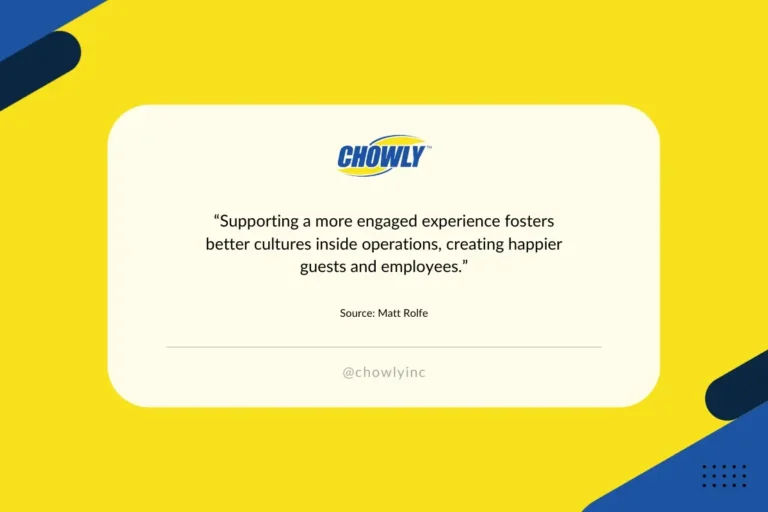
Marketing Beyond the Four Walls
In the competitive realm of restaurant marketing, success hinges on more than just operational excellence—it requires authentic communication of the brand’s story. Matt says the challenge of transcending digital platforms to convey this narrative genuinely. Consistency in messaging and branding across various digital platforms is crucial for ensuring a cohesive customer experience, whether online or in-person. The COVID-19 pandemic has accelerated the shift towards takeout and delivery services, suggesting the need to optimize digital channels and reimagine the guest experience.
Amidst technological advancements, Matt stresses the need to preserve human connection in the restaurant industry. By prioritizing genuine interactions between team members and guests, operators can cultivate authenticity and warmth, enhancing guest satisfaction and loyalty. Aligning staff understanding with the brand’s vision ensures consistency and authenticity, creating a memorable guest experience.
In today’s hyper-connected world, consumers crave authenticity and connection beyond digital storytelling. It’s essential for restaurants to create real-world experiences that reflect their brand narrative. This may involve training staff to embody the brand’s values during face-to-face interactions, fostering immersion in the restaurant’s story. Ultimately, a holistic approach integrating online and offline channels is necessary for marketing beyond the four walls, enabling restaurants to forge deeper connections with their audience and stand out in a crowded market.
Learn about Digital Marketing that’s done-for-you.
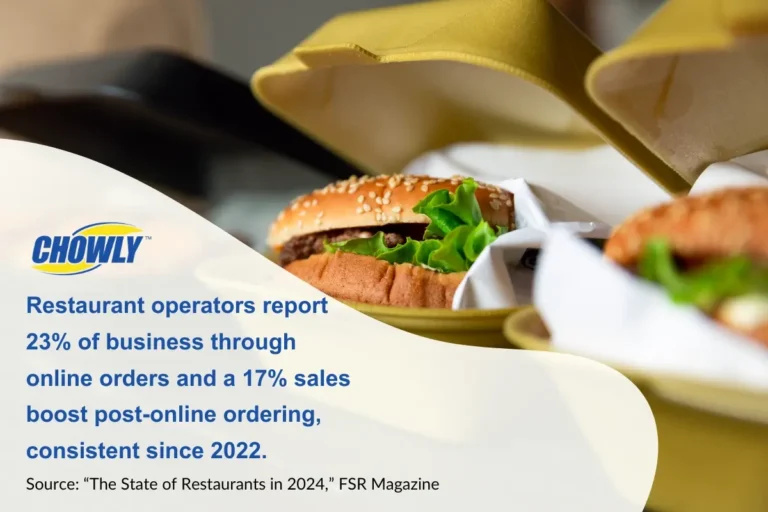
Authentic Leadership
In the realm of leadership, authenticity stands as the cornerstone of effective management, especially within the restaurant industry. Matt emphasizes the challenges leaders face in connecting with their teams amidst shifting dynamics and evolving expectations. Many struggle to adapt their behavior to reignite lost connections and inspire renewed engagement. Matt underscores the necessity of authenticity in leadership, urging individuals to remain true to themselves while striving for excellence. He advocates for genuine interactions that resonate with team members, rejecting corporate conventions in favor of a scrappy approach. According to Matt, leadership should attract those who align with the leader’s authentic style and values.
Drawing from personal experience, Matt highlights the transformative power of genuine leadership. He encourages leaders to embrace their unique selves and lead with integrity, even if it means challenging the status quo. Matt encourages the importance of doing something special in an industry where mediocrity prevails. By fostering genuine connections, leaders can inspire their teams to achieve greatness, creating meaningful experiences for both employees and customers alike.
In the vast landscape of leadership, Matt encourages restaurant operators to seek diverse perspectives and voices, each offering valuable insights for leaders navigating today’s complex landscape.

Conclusion
Matt’s insights offer a clear roadmap for restaurant success. From shifting mindsets to fostering human connections, his guidance emphasizes authenticity, purpose, and excellence. By aligning values with business goals, prioritizing genuine interactions, and embracing diverse perspectives, restaurant operators can navigate challenges and create memorable experiences for both guests and team members. Matt’s expertise serves as a beacon for those striving for sustainable growth and success in the dynamic hospitality industry.
